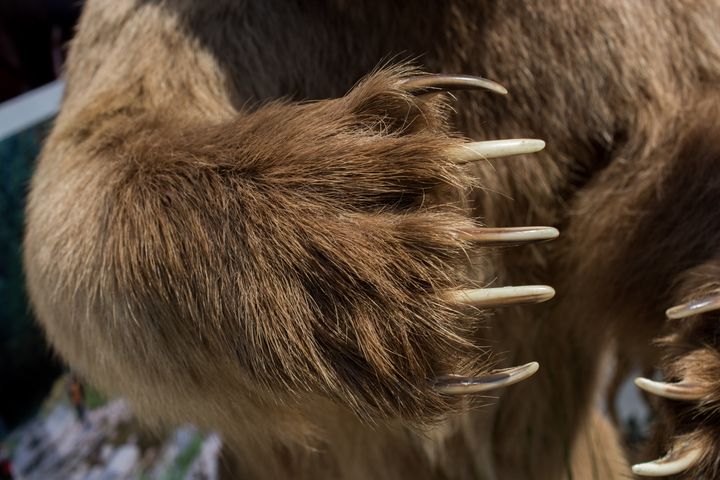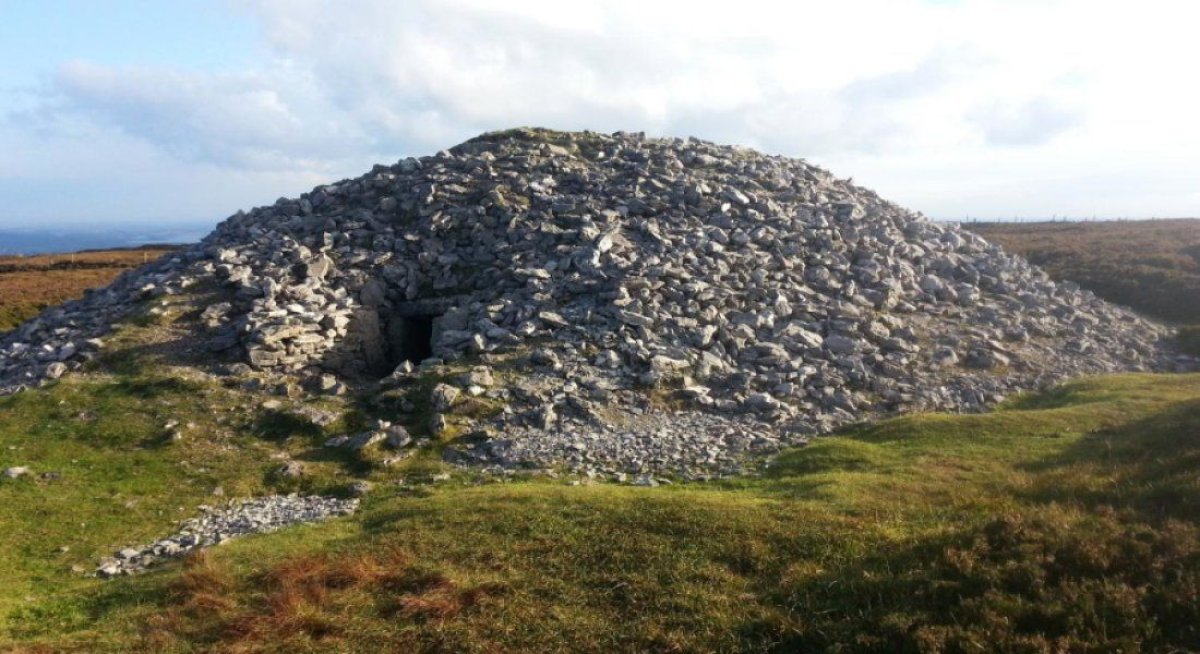
A 4,500-year-old bear paw has been discovered in a Stone Age grave in Poland that contained the dismembered skeletons of a man and child. While animal offerings are a common feature of prehistoric burials from this time, archaeologists have never found bear remains in a grave before.
The burial site was discovered a few years ago and examined by archaeologists, Science in Poland (PAP), a site run by the country's Ministry of Science and Higher Education, reports. It had been found by a local villager while he was digging a drive on his property.
Researchers found a large entrance cavity leading to a recess where they believe rituals would have been performed. The skeletons—an adult male and a small child—had been dismembered. They found and traces of fire, including a pig jaw, which is thought to have had ritual significance.
"It turned out that at the bottom of the entrance cavity, before the funerary niche, there was a single cattle bone and an almost complete bear paw. The latter find is completely unique among the late Neolithic graves," Elżbieta Sieradzka, from the Institute of Archaeology of the University of Rzeszów, told PAP.
The bears paw was found to have been in the correct anatomical arrangement, suggesting that it had been placed there on purpose, in its entirety—rather than being discarded after a feast.
Mirosława Zabilska-Kunek and Daniel Makowiecki, who performed the bone analysis, said that normally graves from this period contain the bones of cattle and pigs. The team believes this burial site provides an insight into the rituals being carried out towards the end of the Stone Age.
"The bear's paw could be an offering for the deceased," Sieradzka said. "There are many examples of the symbolic meaning of this part of the carcass. In southern Fennoscandia [on the Scandinavian Peninsula] people believed that fangs, claws, penile bones and bear paws had healing powers, protected cattle from predators and gave their owner the animal`s senses and strength."
Bear paws, she said, would sometimes be made into amulets that were thought to deter evil.
Why the skeletons had been dismembered is unclear. However, other Stone Age burial sites have been discovered in Europe where the bodies had been mutilated. On Scotland's Orkney Islands, there is evidence to suggest communities living there 6,000 years ago would bury their dead in tombs whole, before systematically dismembering them over time.
And at a site in northwest Ireland, researchers recently uncovered a 5,000-year-old tomb containing bodies where the bodies had been chopped up, indicating a complex funeral ritual. "We found indications of cut marks caused by stone tools at the site of tendon and ligament attachments around the major joints, such as the shoulder, elbow, hip and ankle," Jonny Geber, from the University of Otago, said in a statement. "This appears to entail the bodies of the dead being 'processed' by their kin and community in various ways, including cremation and dismemberment. It was probably done with the goal to help the souls of the dead to reach the next stages of their existence."

Uncommon Knowledge
Newsweek is committed to challenging conventional wisdom and finding connections in the search for common ground.
Newsweek is committed to challenging conventional wisdom and finding connections in the search for common ground.
About the writer
Hannah Osborne is Nesweek's Science Editor, based in London, UK. Hannah joined Newsweek in 2017 from IBTimes UK. She is ... Read more
To read how Newsweek uses AI as a newsroom tool, Click here.








